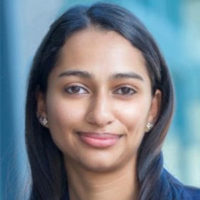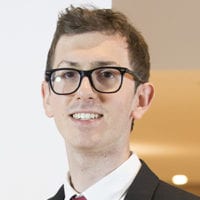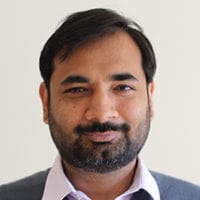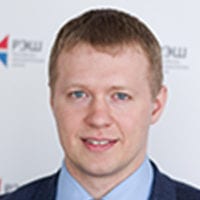The Institute for Business Innovation administers several fellowships that support coursework and research of Haas graduate students. In the current academic year, the school selected the students listed below to benefit from The Ryoichi Sasakawa Young Leaders Fellowship Fund (Sylff).
The Ryoichi Sasakawa Young Leaders Fellowship Fund, Sylff
The Ryoichi Sasakawa Young Leaders Fellowship Fund, Sylff, is a collaborative initiative of The Nippon Foundation, the endowment donor, and The Tokyo Foundation for Policy Research, the program administrator. The Program contributes to support the education of outstanding students pursuing graduate level study in the social sciences and humanities with high potential for leadership. UC Berkeley administers the income from a generous endowment to grant Sylff fellowships to Haas PhD students. Many past Sylff fellows have become leaders in their fields, including our own Garwood Center Director, Professor Henry Chesbrough.
Current Fellows

Yunfei Yao

Andres Gonzalez-Lira
The state is the largest buyer in most countries. However, promoting efficient public procurement is challenging because it often faces a principal-agent problem: procurement officers’ incentives are often misaligned with policymakers. My research focuses on studying how the interaction of different market features and regulation determines procurement competition and outcomes. In particular, I explore how different rules and incentives affect the behavior of procurement officers and private suppliers.

Gauri Subramani
Gauri’s research focuses on understanding how institutions and digital tools can better serve individuals and enable workers and firms to thrive, as well as mitigate discrimination and bias. Particularly, the distributional consequences of economic growth; that is, understanding both what types of firms and individuals benefit from broad growth. The goal is to explore the effects of economic policies on individuals and shed light on how institutions and firms can leverage resources to help create more equitable, supportive, and successful work environments and communities.

Matteo Tranchero
MORS
Matteo studies physician behavior and the availability of new information. Despite detailed standards on the content of medical education, physicians exhibit wide variation in the way they provide medical care, which has an impact on the costs of care sand health outcomes of patients. Research on the sources of variation is scant. Matteo examines the adoption of new practices by physicians following the release of new information about the effectiveness of specific treatments. He examines the introduction of a drug to treat blood clots with less side effects, and the release of a new guideline regarding the optimal (lower) frequency of pap smears. Matteo examines which physicians adopt these new perspectives on treatment by focusing specifically on the organizational structure in which physicians are embedded. The project uses the Massachusetts All Payers Claims Database to test whether physicians in large practices are more likely to incorporate new insights into their medical decision making while accounting for selection issues by exploiting acquisitions of small physician practices by larger health care systems.

Muhammad Yasir Khan
Muhammad Yasir Khan studies the role of incentives and motivations in public and non-profit organizations. Organizations that provide pro-social services have an opportunity to leverage their mission to motivate the workers. In partnership with the Health Department in Pakistan, he is running randomized control trial of introducing formal organizational mission to the workers. The study will shed light on whether an organization can motivate workers with its mission and compare it with the efficacy of financial rewards. He is also interested in exploring how financial incentives can crowd out intrinsic motivation and under what conditions.
Past Fellows

Alexey Sinyashin
Marketing
Alexey’s work studies the effects of consumer non-monetary incentives on demand and environmental impact of “green” products in the US market for electric vehicles. Electric vehicles are typically priced higher than comparable gas-powered cars but less costly to operate, which makes them financially most appealing for high-mileage drivers. Environment conscious drivers may also be willing to pay a price premium for an electric car although they do not necessarily drive a lot of miles per year. On the one hand, environmental consciousness among all drivers improves adoption of the “green” technology, but, on the other hand, demand from eco-conscious drivers drives prices for electric cars up and makes them less appealing for consumers who care only about financial benefits. As a result, total miles traveled substituted by “green” vehicles for gas-powered vehicles could be lower in the presence of environmental consciousness. First, this means lower instantaneous environmental effect of electric vehicles, and, second, this means lower demand for charging infrastructure, which, in its turn, means slower subsequent adoption. The paper builds a structural model to estimate a price premium that environment conscious drivers pay for electric vehicles, its environmental effects and effects on demand and adoption of electric vehicles.

Hyoseok Kang
I examine how competition affects entrepreneurship and innovation. I first analyze how competition affects entry, growth, and exit of entrepreneurial firms as well as established incumbent firms. I then study how competition alters a firm’s ability and incentives to innovate. Importantly, I provide novel evidence that innovation is multidirectional and that competition changes the fundamental direction of innovation. That is, less competition may promote breakthrough innovation, while higher competition makes firms engage in incremental innovation. Research in this area is challenging because competition is endogenous and data is scarce. I use U.S. Census microdata and exploit antitrust cases (i.e., formation and breakup of cartel) as sources of variation in market competitiveness.

Laura Boudreau
Laura’s research interests are shaped by her professional background in and personal passion for international development. Since coming to Haas, Laura started to explore how public policy, particularly pertaining to social and environmental issues, and globalization impact individuals and households as well as firms and markets in developing countries. Laura is also conducting research on political economy and economic development, particularly in the context of middle- income countries.

Troup Howard
Finance
Troup’s work is at the intersection of public finance, labor economics, and corporate finance. He studies racial gaps in the value of houses assessed by local government for property tax purposes. For this purpose, Troup has collected a unique dataset that allows him to observe, for a large subset of houses in the US, the house value as assessed by the local government assessor, as well as the transaction value of the house in the same year. Troup finds that in Census tracts with a larger share of the African-American population, the gap between assessed and market value is significantly larger. What is unique to this setting relative to standard settings in the economics of discrimination is that Troup observes a very precise measure of the fundamental value of the house — its transaction value. Howard. Troup is also working on extending his dataset to obtain information about race at the house level (as opposed to using Census-tract level information on race).